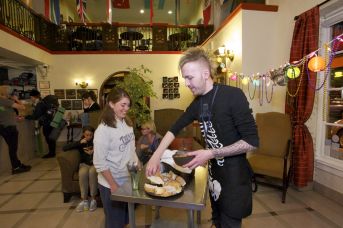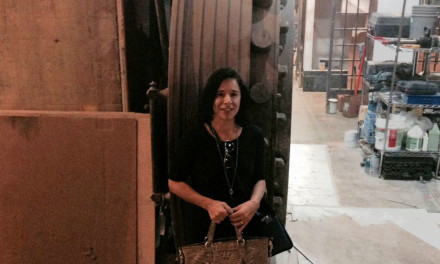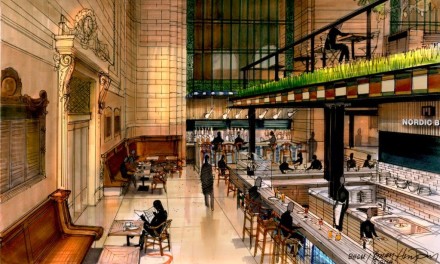SILVER SPRING, MD – Given that “authentic” is one of the hottest buzzwords in the lodging world today, the USA’s largest hostel organization thinks it’s an opportune time to grow now – even as brands race to deliver “authentic” experiences.
“Travelers are looking to experience the real side of their destination,” Laurie Wooden told me recently during lunch at a local Cuban restaurant called Cubano’s.
A former top marketer of the luxury Ritz-Carlton and Waldforf-Astoria brands, Wooden a year ago became the executive in charge of overhauling and improving the image of Hosteling International – USA. The organization currently markets 55 unique properties in the U.S. The price of a bed starts at $29 a night, roughly a tenth of the beds she used to market.
“Honestly, we don’t think of ourselves as being in the hospitality industry. The people who work for us truly care about creating a great experience in their hometown or adopted hometown,” she said. “The term ‘authentic’ is really overused now, so I say ‘authentic authentic.’”
Based in Silver Spring, HIUSA in March completed a significant internal reorganization designed to encourage growth and – for the first time – a cohesive marketing program.
Work is under way to add more locations such as the recently announced hostel in Richmond, Va., and make them more appealing to travelers who never before considered hostels, Wooden said. A number of hostels now have private rooms, for example, which can help them attract new customers.
Perception today?
The current perception of hostels is, she admits, lacking.
Those who know that hostels exist perceive them as a “ cheap, safe place to stay – if you don’t mind sharing a room,” Wooden told me.
“Awareness was very low,” she said. “It’s what you do in Europe. It’s what you do in Asia. So there’s a mindset that we need to address.”
The Americans who have physically experienced a hostel often have done on a post-college backpacking trip through Europe or Asia, she said. (I am part of that group! While living in San Francisco after college long ago, I backpacked through Europe for six months; the trip included hostel stays in Monaco, Cannes and Italy.)
“We want (travelers) to perceive the hostel stay experience as being about a fun, meaningful, authentic way to experience a destination,” Wooden told me. “When a traveler asks, ‘Where can I go to get Thai food?’ They’re going hear, ‘Do you want to go fancy? Are you willing to go down and dirty but where the food is awesome?’”
Staffing is key to guests’ experience. When they check into a hostel in Portland, for instance, they might be greeted by a guy right out of central casting of the snarky TV hit, Portlandia – with thick-framed glasses and sleeves of tattoos. In contrast, most big chains have strict workforce rules that forbid employees from showing tattoos and other-than-ear piercings or other forms of self-expression.
Rebranding: Good timing
The re-branding of HIUSA comes at an interesting time when various trends already underway could support a hotel revival here:
- Shifting consumer tastes: By now, even legacy chains “get” the fact that younger generations of travelers, especially Millennials, no longer want the “same old.” These travelers want to wake up in their room knowing where they are, and eat and live like a local.
- Disruptive technology: These days, you can’t miss reading headlines about the explosive growth of alternative lodging provider Airbnb, the online service that links adventurous travelers with short-term rentals of apartments and homes. The awareness of Airbnb highlights the hunger out there for a different style of lodging.
- Rising hotel rates: In some cities – especially San Francisco – room rates are soaring, so hostels there are seeing business travelers check in. “People who are traveling on business or attending a convention at the Moscone Center can’t always afford $300 or $400 a night,” Wooden said. “They can get a private room in a hostel for a fraction of the cost.”
- Boom in cool hostels overseas: London-based Generator Hostels is creating a chain of modern hostels with a cool vibe and social media savvy bent in Europe. More are emerging around the world as well as in the U.S. If you look at Generator’s Facebook page, you’ll see what looks like concertgoers standing by a stage snapping photos with their smart phones – a very Millennial scene. Brazil’s El Misti hostel chain is another good example of a growing chain that’s exposing its Brazilian, European and American guests to hip hostel experiences. Bottom line: More European and Latin American travelers will look for hip hostels when visiting the States.
- Growing hostel scene in the U.S.: Expect to hear about more hotels in the States from operators like Sydell Group, the New York-based operator of hip hotels such as the Ace and the Nomad in New York. They’re launching a chain of hostels called Freestyle. I know of others working on hostel properties elsewhere in the U.S., including Seattle.
Readers: Do you think hostels – and hostelling as a lifestyle – has the potential to catch on in the U.S.? Why or why not?
Photos courtesy of HI-USA. Above, a worker and a guest at the San Francisco City Center hostel; below, people hang out at a pool table in Boston.


Photos courtesy of Hostelling International – USA. Top photo: San Francisco City Center Hostel. Below the article are photos that show a pool table scene at the Boston hostel, and the exterior of the Portland hostel.




